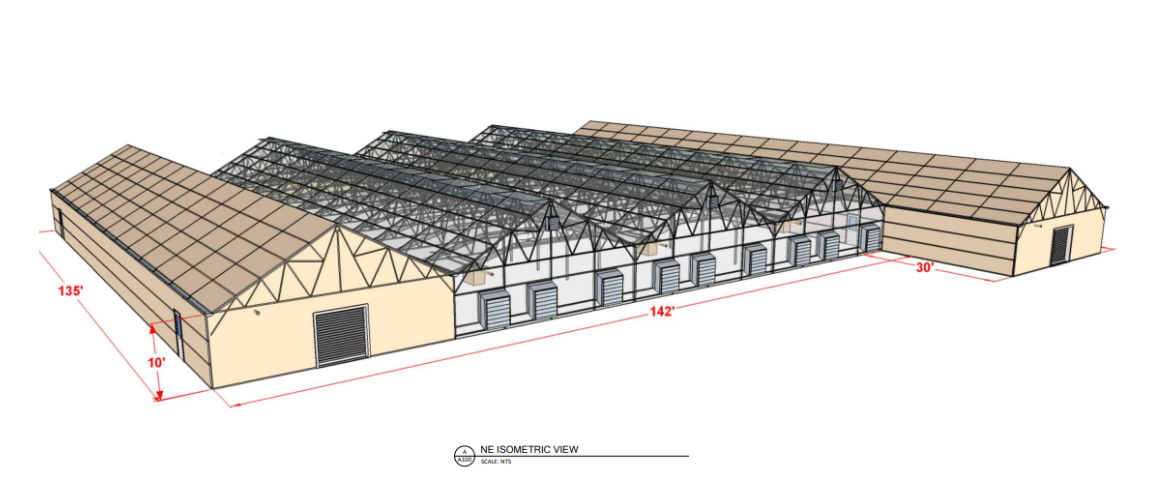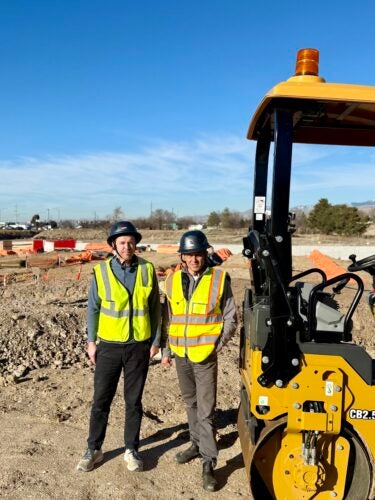
Big, messy projects? College of Business and Economics Executive MBA (EMBA) participants are up for the task. Every year, EMBA participants wrap up the two-year program with one of these projects for their capstone course. These three-month consulting engagements benefit local companies, and they can range from planning for new product launches to positioning a business for sale.
“The capstone projects cover very complex, messy, often not well-defined problems,” said Brian O’Morrow, senior director of Executive Education and MBA programs for working professionals. “The participating companies have questions and issues with no simple right or wrong answer–instead they are looking for help to find the best path forward.”
The EMBA program’s mission is to create flexible, innovative leaders, and the capstone projects give participants a prime opportunity to apply all the skills they’ve learned. Teams work throughout the semester doing research and collaborating with the client companies, then share a final presentation and recommendations. Because the projects involve proprietary information, they’re typically protected by non-disclosure agreements. However, one company involved with the most recent EMBA cohort was willing to share its story.
Growing Greenscale’s business vision

Greenscale is an indoor farming startup developing a combined aquaculture and hydroponic facility in Boise. Founded by Scott Meikle, a former technology executive, the company plans to grow both fish and leafy vegetables using a manufacturing-like approach to farming, also known as controlled environment agriculture or CEA. This method produces high-quality, pesticide-free food with very low water usage.

Construction on Greenscale’s facility began in the spring of 2025. While the company has a clear near-term plan, they wanted to work with EMBA participants to create a long-term business plan. CEA suffers from one basic deficit which is a viable long term business model that overcomes high upfront capital expense and ongoing operational costs. Troy Stamp, an EMBA participant, founder of Blue Peak Strategic Solutions and senior project manager for Parsons, was on the Greenscale team and confirmed the project fit the “big, messy” criteria.
“Greenscale had a tough project. Usually companies come up with a product first and then figure out everything that surrounds it, but Greenscale did the opposite,” Stamp said. “They had a vision for quality and capability and a large up-front investment, but they hadn’t fully explored product possibilities. So, we EMBA-ed it. We zoomed in from their 100-foot view to a two-inch view and gave them a full financial model after researching and testing their theories. Greenscale’s original forecast was around 30 lines of a spreadsheet, and we gave them a 110 line, eight-sheet Excel spreadsheet as a financial model.”
The team’s work touched on everything they’d learned in the EMBA program, plus one additional key skill: client management. Stamp reports that the project helped them improve their negotiation and communication techniques, and build strong client connections.

“Our group’s strategy was to bring the client along for the ride,” Stamp said. “Greenscale was very open and transparent with their data and they were super engaged with us. It made our job much easier. In the end, they knew what we were going to present because they’d been involved through the whole process. The presentation was just the icing on the cake.”
Greenscale reports the collaboration was a success, with the project and recommendations already shaping the business.
“The capstone project has been an accelerator for Greenscale,” said Meikle. “We’re a three-employee startup, and the EMBA team’s work helped apply discipline to all aspects of company planning. With a small team, who knows if and when we could have gotten around to doing that type of deep research and analysis. The EMBA team really delivered meaningful data and suggestions. Since the presentation, we’ve doubled down on product development and marketing aligned with the EMBA team recommendations.”
The lasting benefits of EMBA capstones
Capstone projects have been a fundamental part of the EMBA program since it began 19 years ago, serving as a cornerstone of the curriculum. This unique model provides invaluable real-world experience for EMBA participants while offering considerable value to local businesses.
“Although the companies are putting themselves out there by participating, they get a high-quality consulting project,” O’Morrow said. “If they hired a professional consulting company for the same work, it could cost hundreds of thousands of dollars. Most of the clients can’t afford that investment, but they get that quality of results from working with the EMBA participants, who have an average of 20 years of work experience when they start the two-year program.”
Timothy Dunne, associate professor of management and the faculty adviser for EMBA, actively sources the projects with area businesses, including at least one non-profit organization each year. Interested businesses can email timothydunne@boisestate.edu to learn more.